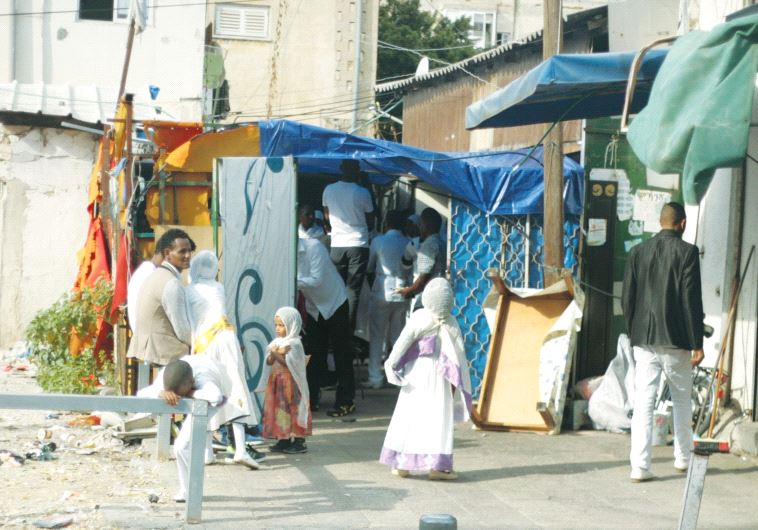Ban on soldiers volunteering with migrants hits hard in south Tel Aviv
Some in south Tel Aviv see soldiers’ volunteer efforts with immigrants as an affront to the area’s working class Jewish residents.
 AFRICAN MIGRANTS attend a wedding in Tel Aviv’s Neveh Sha’anan neighborhood(photo credit: ELIYAHU KAMISHER)
AFRICAN MIGRANTS attend a wedding in Tel Aviv’s Neveh Sha’anan neighborhood(photo credit: ELIYAHU KAMISHER)